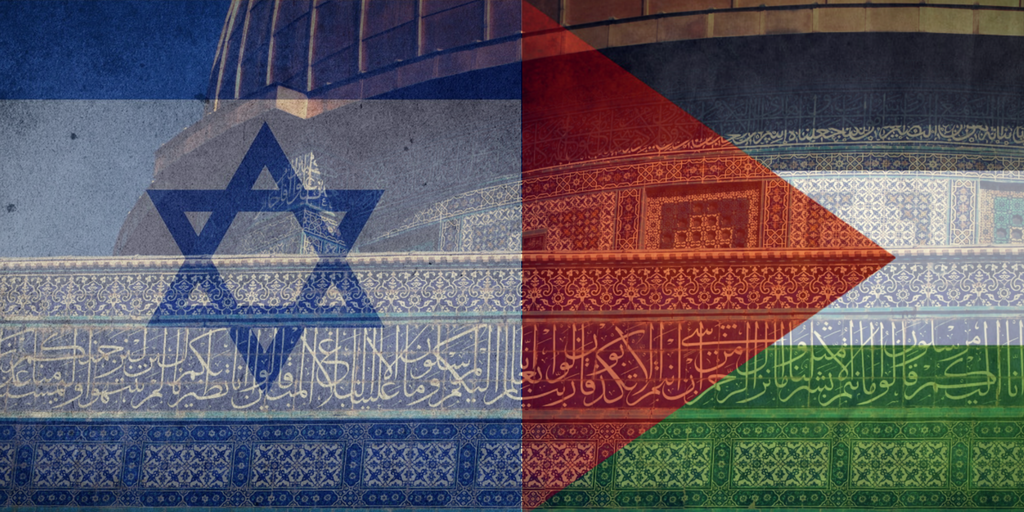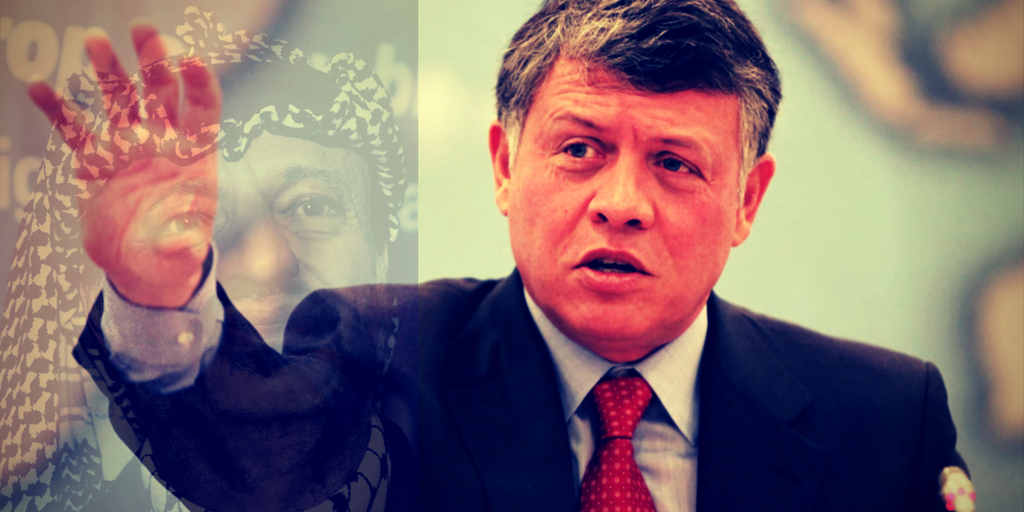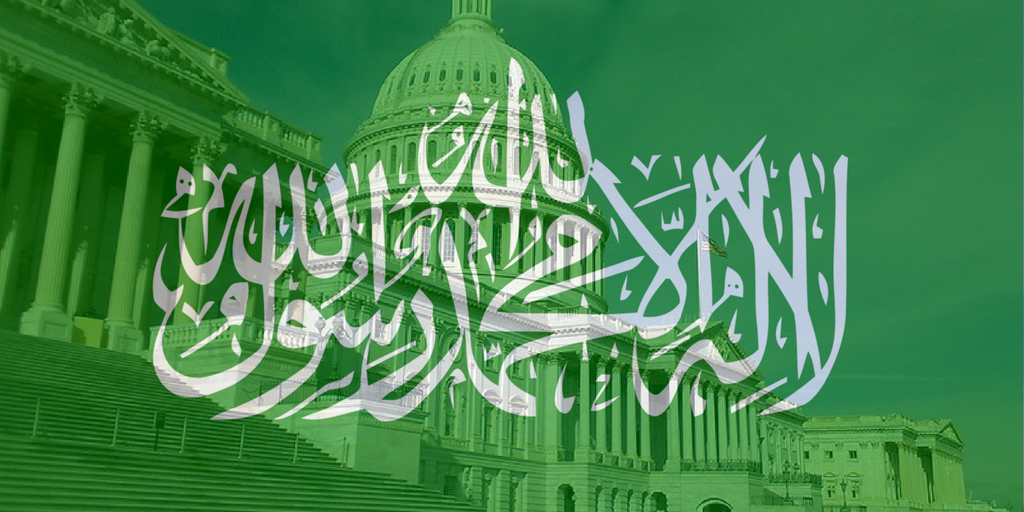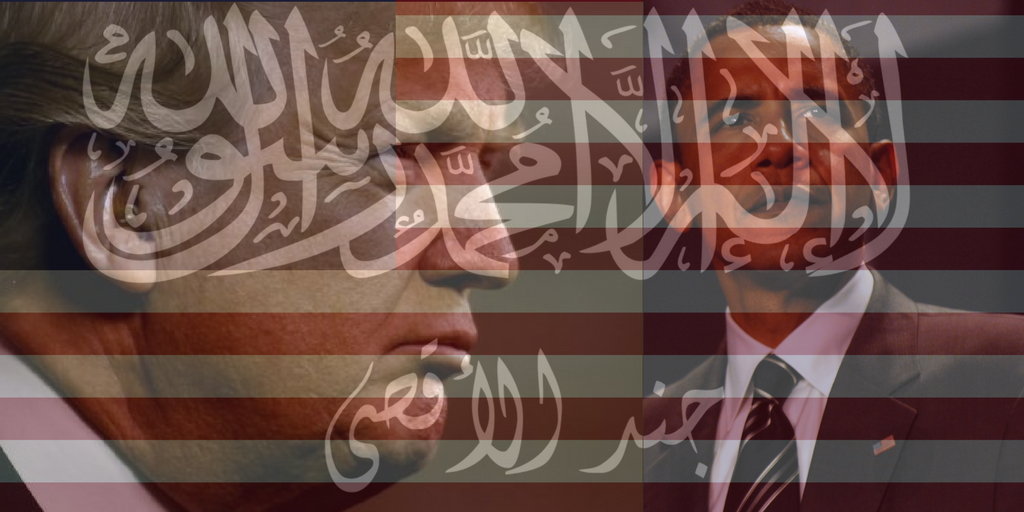On January 27, President Donald Trump signed an executive order to implement his proposed “extreme vetting” of those applying for entry visas into the United States. This article by Middle East Forum President Daniel Pipes, who has written extensively on the practicality and enforceability of screening for Islamists, is an advance release from the forthcoming Spring 2017 issue of Middle East Quarterly.
Donald Trump issued an executive order on Jan. 27 establishing radically new procedures to deal with foreigners who apply to enter the United States.
Building on his earlier notion of “extreme vetting,” the order explains that
to protect Americans, the United States must ensure that those admitted to this country do not bear hostile attitudes toward it and its founding principles. The United States cannot, and should not, admit those who do not support the Constitution, or those who would place violent ideologies over American law. In addition, the United States should not admit those who engage in acts of bigotry or hatred (including “honor” killings, other forms of violence against women, or the persecution of those who practice religions different from their own) or those who would oppress Americans of any race, gender, or sexual orientation.
This passage raises several questions of translating extreme vetting in practice: How does one distinguish foreigners who “do not bear hostile attitudes toward it and its founding principles” from those who do? How do government officials figure out “those who would place violent ideologies over American law”? More specifically, given that the new procedures almost exclusively concern the fear of allowing more Islamists into the country, how does one identify them?
I shall argue these are doable tasks and the executive order provides the basis to achieve them. At the same time, they are expensive and time-consuming, demanding great skill. Keeping out Islamists can be done, but not easily.
The Challenge
By Islamists (as opposed to moderate Muslims), I mean those approximately 10-15 percent of Muslims who seek to apply Islamic law (the Shari’a) in its entirety. They want to implement a medieval code that calls (among much else) for restricting women, subjugating non-Muslims, violent jihad, and establishing a caliphate to rule the world.
| Islamists—not all Muslims—must urgently be excluded from the U.S. and other Western countries. |
For many non-Muslims, the rise of Islamism over the past forty years has made Islam synonymous with extremism, turmoil, aggression, and violence. But Islamists, not all Muslims, are the problem; they, not all Muslims, must urgently be excluded from the United States and other Western countries. Not just that, but anti-Islamist Muslims are the key to ending the Islamist surge, as they alone can offer a humane and modern alternative to Islamist obscurantism.
Identifying Islamists is no easy matter, however, as no simple litmus test exists. Clothing can be misleading, as some women wearing hijabs are anti-Islamists, while practicing Muslims can be Zionists; nor does one’s occupation indicate much, as some high-tech engineers are violent Islamists. Likewise, beards, teetotalism, five-times-a-day prayers, and polygyny do not tell about a Muslim’s political outlook. To make matters more confusing, Islamists often dissimulate and pretend to be moderates, while some believers change their views over time.
Finally, shades of gray further confuse the issue. As noted by Robert Satloff of The Washington Institute, a 2007 book from the Gallup press, Who Speaks for Islam? What a Billion Muslims Really Think, based on a poll of over 50,000 Muslims in 10 countries, found that 7 percent of Muslims deem the 9/11 attacks “completely justified,” 13.5 percent consider the attacks completely or “largely justified,” and 36.6 percent consider the attacks completely, largely, or “somewhat justified.” Which of these groups does one define as Islamist and which not?
Faced with these intellectual challenges, American bureaucrats are unsurprisingly incompetent, as I demonstrate in a long blog titled “The U.S. Government’s Poor Record on Islamists.” Islamists have fooled the White House, the departments of Defense, Justice, State, and Treasury, the Congress, many law enforcement agencies and a plethora of municipalities. A few examples:
- The Pentagon in 2001 invited Anwar al-Awlaki, the American Islamist it later executed with a drone-launched missile, to lunch.
- In 2002, FBI spokesman Bill Carter described the American Muslim Council (AMC) as “the most mainstream Muslim group in the United States” – just two years before the bureau arrested the AMC’s founder and head, Abdurahman Alamoudi, on terrorism-related charges. Alamoudi has now served about half his 23-year prison sentence.
- George W. Bush appointed stealth Islamist Khaled Abou El Fadl in 2003 to, of all things, the United States Commission on International Religious Freedom.
- The White House included staff in 2015 from the Council on American-Islamic Relations (CAIR) in its consultations, despite CAIR’s initial funding by a designated terrorist group, the frequent arrest or deportation of its employees on terrorism charges, a history of deception, and the goal of one of its leaders to make Islam the only accepted religion in America.
Fake-moderates have fooled even me, despite all the attention I devote to this topic. In 2000, I praised a book by Tariq Ramadan; four years later, I argued for his exclusion from the United States. In 2003, I condemned a Republican operative named Kamal Nawash; two years later, I endorsed him. Did they evolve or did my understanding of them change? More than a decade later, I am still unsure.
Uniform Screening Standards
Returning to immigration, this state of confusion points to the need for learning much more about would-be visitors and immigrants. Fortunately, Trump’s executive order, “Protecting the Nation from Foreign Terrorist Entry into the United States,” signed on Jan. 27, 2017, requires just this. It calls for “Uniform Screening Standards” with the goal of preventing individuals from entering the United States “on a fraudulent basis with the intent to cause harm, or who are at risk of causing harm subsequent to their admission.” The order requires that the uniform screening standard and procedure include such elements as (bolding is mine):
- In-person interviews;
- A database of identity documents proffered by applicants to ensure that duplicate documents are not used by multiple applicants;
- Amended application forms that include questions aimed at identifying fraudulent answers and malicious intent;
- A mechanism to ensure that the applicant is who the applicant claims to be;
- A process to evaluate the applicant’s likelihood of becoming a positively contributing member of society and the applicant’s ability to make contributions to the national interest; and
- A mechanism to assess whether or not the applicant has the intent to commit criminal or terrorist acts after entering the United States.
Elements 1, 3, 5, and 6 permit and demand the procedure outlined in the following analysis. It contains two main components, in-depth research and intensive interviews.
Research
When a person applies for a security clearance, the background checks should involve finding out about his family, friends, associations, employment, memberships, and activities. Agents must probe these for questionable statements, relationships, and actions, as well as anomalies and gaps. When they find something dubious, they must look further into it, always with an eye for trouble. Is access to government secrets more important than access to the country? The immigration process should start with an inquiry into the prospective immigrant and, just as with security clearances, the border services should look for problems.
Also, as with security clearance, this process should have a political dimension: Does the person in question have an outlook consistent with that of the Constitution? Not long ago, only public figures such as intellectuals, activists, and religious figures put their views on the record; but now, thanks to the Internet and its open invitation to everyone to comment in writing or on video in a permanent, public manner, and especially to social media (Facebook, Twitter, etc.), most everyone with strong views at some point vents them. Such data provides valuably unfiltered views on many critical topics, such as Islam, non-Muslims, women, and violence as a tactic. (Exploiting this resource may seem self-evident but U.S. immigration authorities do not do so, thereby imposing a self-restraint roughly equivalent to the Belgian police choosing not to conduct raids between 9 p.m. and 5 a.m.)
In the case of virulent, overt, outspoken jihadis, this research usually suffices to provide evidence to exclude them. Even some non-violent Islamists proudly announce their immoderation. But many Islamists adopt a milder and subtler tone, their goal being to appear moderate so they can enter the country and then impose Shari’a through lawful means. As suggested by some of the examples above, such as Abou El Fadl or CAIR, research often proves inadequate in these instances because cautious Islamists hide their goals and glibly dissimulate. Which brings us to entrance interviews.
Entrance Interviews
Assuming that lawful Islamists routinely hide their true views, an interview is needed before letting them enter the country. Of course, it is voluntary, for no one is forced to apply for immigration, but it also must be very thorough. It should be:
Recorded: With the explicit permission of the person being questioned (“You understand and accept that this interview is being recorded, right?”), the exchange should be visibly videotaped so the proceedings are unambiguously on the record. This makes available the interviewee’s words, tone, speech patterns, facial expressions, and body language for further study. Form as well as substance matters: does the interviewee smile, fidget, blink, make eye contact, repeat, sweat, tremble, tire, need frequent toilet breaks, or otherwise express himself in non-verbal ways?
| Effective interviewing requires a battery of queries on many topics. |
Polygraph: Even if a lie detector machine does not, in fact, provide useful information, attaching the interviewee to it might induce greater truth-telling.
Under oath: Knowing that falsehoods will be punished, possibly with jail time, is a strong inducement to come clean.
Public: If the candidate knows that his answers to abstract questions (as opposed to personal ones about his life) will be made public, this reduces the chances of deception. For example, asked about belief for the full application of Islamic laws, an Islamist will be less likely to answer falsely in the negative if he knows that his reply will be available for others to watch.
| Look for inconsistency by asking the same thing in different ways. An example: “May a woman show her face in public?” and “Is a male guardian responsible for making sure his women-folk don’t leave the house with faces uncovered?” |
Multiple: No single question can evince a reply that establishes an Islamist disposition; effective interviewing requires a battery of queries on many topics, from homosexuality to the caliphate. The answers need to be assessed in their totality.
Specific: Vague inquiries along the lines of “Is Islam a religion of peace?”, “Do you condemn terrorism?” “How do you respond to the murder of innocents,” depend too much on one’s definition of words such as peace, terrorism, and innocents to help determine a person’s outlook, and so should be avoided. Instead, questions must be focused and exact: “May Muslims convert out of Islam, whether to join another faith or to become atheists?” “Does a Muslim have the right to renounce Islam?”
Variety in phrasing: For the questions to ferret out the truth means looking for divergence and inconsistency by asking the same question with different words and variant emphases. A sampling: “May a woman show her face in public?” “What punishment do you favor for females who reveal their faces to men not related to them by family?” “Is it the responsibility of the male guardian to make sure his women-folk do not leave the house with faces uncovered?” “Should the government insist on women covering their faces?” “Is society better ordered when women cover their faces?” Any one of the questions can be asked in different ways and expanded with follows-up about the respondent’s line of reasoning or depth of feeling.
Repeated: Questions should be asked again and again over a period of weeks, months, and even longer. This is crucial: lies being much more difficult to remember than truths, the chances of a respondent changing his answers increases with both the volume of questions asked and the time lapse between questionings. Once inconsistencies occur, the questioner can zero in and explore their nature, extent, and import.
The Questions
Guidelines in place, what specific questions might extract useful information?
The following questions, offered as suggestions to build on, are those of this author but also derive from a number of analysts devoting years of thinking to the topic. Naser Khader, the-then Danish parliamentarian of Syrian Muslim origins, offered an early set of questions in 2002. A year later, this author published a list covering seven subject areas.
Others followed, including the liberal Egyptian Muslim Tarek Heggy, the liberal American Muslims Tashbih Sayyed and Zuhdi Jasser, the ex-Muslim who goes by “Sam Solomon,” a RAND Corporation group, and the analyst Robert Spencer. Of special interest are the queries posed by the German state of Baden-Württemberg dated September 2005 because it is an official document (intended for citizenship, not immigration, but with similar purposes).
Islamic doctrine:
1. May Muslims reinterpret the Koran in light of changes in modern times?
2. May Muslims convert out of Islam, either to join another faith or to be without religion?
3. May banks charge reasonable interest (say 3 percent over inflation) on money?
4. Is taqiya (dissimulation in the name of Islam) legitimate?
Islamic pluralism:
5. May Muslims pick and choose which Islamic regulations to abide by (e.g., drink alcohol but avoid pork)?
6. Is takfir (declaring a Muslim to be an infidel) acceptable?
7. [Asked of Sunnis only:] Are Sufis, Ibadis, and Shi’ites Muslims?
8. Are Muslims who disagree with your practice of Islam infidels (kuffar)?
The state and Islam:
9. What do you think of disestablishing religion, that is, separating mosque and state?
10. When Islamic customs conflict with secular laws (e.g., covering the face for female drivers’ license pictures), which gets priority?
11. Should the state compel prayer?
12. Should the state ban food consumption during Ramadan and penalize transgressors?
13. Should the state punish Muslims who eat pork, drink alcohol, and gamble?
14. Should the state punish adultery?
15. How about homosexuality?
16. Do you favor a mutawwa’ (religious police) as exist in Saudi Arabia?
17. Should the state enforce the criminal punishments of the Shari’a?
18. Should the state be lenient when someone is killed for the sake of family honor?
19. Should governments forbid Muslims from leaving Islam?
Marriage and divorce:
20. Does a husband have the right to hit his wife if she is disobedient?
21. Is it a good idea for men to shut their wives and daughters at home?
22. Do parents have the right to determine whom their children marry?
23. How would you react if a daughter married a non-Muslim man?
24. Is polygyny acceptable?
25. Should a husband have to get a first wife’s approval to marry a second wife? A third? A fourth?
26. Should a wife have equal rights with her husband to initiate a divorce?
27. In the case of divorce, does a wife have rights to child custody?
Female rights:
28. Should Muslim women have equal rights with men (for example, in inheritance shares or court testimony)?
29. Does a woman have the right to dress as she pleases, including showing her hair, arms and legs, so long as her genitalia and breasts are covered?
30. May Muslim women come and go or travel as they please?
31. Do Muslim women have a right to work outside the home or must the wali approve of this??
32. May Muslim women marry non-Muslim men?
33. Should males and females be separated in schools, at work, and socially?
34. Should certain professions be reserved for men or women only? If so, which ones?
35. Do you accept women occupying high governmental offices?
36. In an emergency, would you let yourself be treated by or operated on by a doctor of the opposite gender?
Sexual activity:
37. Does a husband have the right to force his wife to have sex?
38. Is female circumcision part of the Islamic religion?
39. Is stoning a justified punishment for adultery?
40. Do members of a family have the right to kill a woman if they believe she has dishonored them?
41. How would you respond to a child of yours who declares him- or herself a homosexual?
Schools:
42. Should your child learn the history of non-Muslims?
43. Should students be taught that Shari’a is a personal code or that governmental law must be based on it?
44. May your daughter take part in the sports activities, especially swimming lessons, offered by her school?
45. Would you permit your child to take part in school trips, including overnight ones?
46. What would you do if a daughter insisted on going to university?
Criticism of Muslims:
47. Did Islam spread only through peaceful means?
48. Do you accept the legitimacy of scholarly inquiry into the origins of Islam, even if it casts doubt on the received history?
49. Do you accept that Muslims were responsible for the 9/11 attacks?
50. Is the Islamic State/ISIS/ISIL/Daesh Islamic in nature?
Fighting Islamism:
51. Do you accept enhanced security measures to fight Islamism, even if this might mean extra scrutiny of yourself (for example, at airline security)?
52. When institutions credibly accused of funding jihad are shut down, is this a symptom of anti-Muslim bias?
53. Should Muslims living in the West cooperate with law enforcement?
54. Should they join the military?
55. Is the “war on terror” a war on Islam?
Non-Muslims (in general):
56. Do all humans, regardless of gender, ethnicity, sexual orientation or religious beliefs, deserve equal rights?
57. Should non-Muslims enjoy completely equal civil rights with Muslims?
58. Do you accept the validity of other monotheistic religions?
59. Of polytheistic religions (such as Hinduism)?
60. Are Muslims superior to non-Muslims?
61. Should non-Muslims be subject to Islamic law?
62. Do Muslims have anything to learn from non-Muslims?
63. Can non-Muslims go to paradise?
64. Do you welcome non-Muslims to your house and go to their residences?
Non-Muslims (in Dar al-Islam):
65. May Muslims compel “Peoples of the Book” (i.e., Jews and Christians) to pay extra taxes?
66. May other monotheists build and operate institutions of their faith in Muslim-majority countries?
67. How about polytheists?
68. Should the Saudi government maintain the historic ban on non-Muslims in Mecca and Medina?
69. Should it allow churches to be built for Christian expatriates?
70. Should it stop requiring that all its subjects be Muslim?
Non-Muslims (in Dar al-Harb):
71. Should Muslims fight Jews and Christians until these “feel themselves subdued” (Koran 9:29).
72. Is the enslavement of non-Muslims acceptable?
73. Is it acceptable to arrest individuals who curse the prophet of Islam or burn the Koran?
74. If the state does not act against such deeds, may individual Muslims act?
75. Can one live a fully Muslim life in a country with a mostly non-Muslim government?
76. Should a Muslim accept a legitimate majority non-Muslim government and its laws or work to make Islam supreme?
77. Can a majority non-Muslim government unreservedly win your allegiance?
78. Should Muslims who burn churches or vandalize synagogues be punished?
79. Do you support jihad to spread Islam?
Violence:
80. Do you endorse corporal punishments (mutilation, dismemberment, crucifixion) of criminals?
81. Is beheading an acceptable form of punishment?
82. Is jihad, meaning warfare to expand Muslim rule, acceptable in today’s world?
83. What does it mean when Muslims yell “Allahu Akbar” as they attack?
84. Do you condemn violent organizations such as Boko Haram, Hamas, Hezbollah, Islamic Jihad, the Islamic State, Al-Qaeda, Shabaab, and the Taliban?
Western countries:
85. Are non-Islamic institutions immoral and decadent or can they be moral and virtuous?
86. Do you agree with studies that show non-Muslim countries such as New Zealand to be better living up to the ideals of Islam than Muslim-majority countries?
87. Is Western-style freedom an accomplishment or a form of moral corruption? Why?
88. Do you accept that Western countries are majority-Christian or do you seek to transform them into majority-Muslim countries?
89. Do you accept living in Western countries that are secular or do you seek to have Islamic law rule them?
90. What do you think of Shari’a-police patrolling Muslim-majority neighborhoods in Western countries to enforce Islamic morals?
91. Would you like to see the U.S. Constitution (or its equivalents in other countries) replaced by the Koran?
This interview:
92. In an immigration interview like this, if deceiving the questioner helps Islam, would lying be justified?
93. Why should I trust that you have answered these questions truthfully?
Observations about the Interviews
Beyond helping to decide whom to allow into the country, these questions can also help in other contexts as well, for example in police interrogations or interviews for sensitive employment positions. (The list of Islamists who have penetrated Western security services is a long and painful one.)
Note the absence of questions about highly charged current issues. That is because Islamist views overlap with non-Islamist outlooks; plenty of non-Islamists agree with Islamists on these topics. Although Leil Leibowitz in contrast sees Israel as “moderate Islam’s real litmus test,” Islamists are hardly the only ones who demand Israel’s elimination and accept Hamas and Hezbollah as legitimate political actors – or believe the Bush administration carried out the 9/11 attacks or hate the United States. Why introduce these ambiguous issues when so many Islam-specific questions (e.g., “Is the enslavement of non-Muslim acceptable?”) have the virtue of far greater clarity?
The interviewing protocol outlined above is extensive, asking many specific questions over a substantial period using different formulations, probing for truth and inconsistencies. It is not quick, easy, or cheap, but requires case officers knowledgeable about the persons being interviewed, the societies they come from, and the Islamic religion; they are somewhat like a police questioner who knows both the accused person and the crime. This is not a casual process. There are no shortcuts.
Criticisms
This procedure raises two criticisms: it is less reliable than Trump’s no-Muslim policy and it is too burdensome for governments to undertake. Both are readily disposed of.
Less reliable: The no-Muslim policy sounds simple to implement but figuring out who is Muslim is a problem in itself (are Ahmadis Muslims?). Further, with such a policy in place, what will stop Muslims from pretending to renounce their religion or to convert to another religion, notably Christianity? These actions would require the same in-depth research and intensive interviews as described above. If anything, because a convert can hide behind his ignorance of his alleged new religion, distinguishing a real convert to Christianity from a fake one is even more difficult than differentiating an Islamist from a moderate Muslim.
Too burdensome: True, the procedure is expensive, slow, and requires skilled practitioners. But this also has the benefit of slowing a process that many, myself included, consider out of control, with too many immigrants entering the country too quickly. Immigrants numbered 5 percent of the population in 1965, 14 percent in 2015, and are projected to make up 18 percent in 2065. This is far too large a number to assimilate into the values of the United States, especially when so many come from outside the West; the above mechanism offers a way to slow it down.
| Truly protecting the country from Islamists requires a major commitment of talent, resources, and time. |
As for those who argue that this sort of inquiry and screening for visa purposes is unlawful; prior legislation for naturalization, for example, required that an applicant be “attached to the principles of the Constitution” and it was repeatedly found to be legal.
Finally, today’s moderate Muslim could become tomorrow’s raging Islamist; or his infant daughter might two decades later become a jihadi. While any immigrant can turn hostile, such changes happen far more often among born Muslims. There is no way to guarantee this from happening but extensive research and interrogations reduce the odds.
Conclusion
Truly to protect the country from Islamists requires a major commitment of talent, resources, and time. But, properly handled, these questions offer a mechanism to separate enemy from friend among Muslims. They also have the benefit of slowing down immigration. Even before Trump became president, if one is to believe CAIR, the U.S. Customs and Border Protection Agency (CBP) asked questions along the lines of those advocated here (What do you think of the USA? What are your views about jihad? See the appendix for a full listing). With Trump’s endorsement, let us hope this effective “no-Islamists” policy is on its way to becoming systematic.
Appendix
On January 18, 2017, just hours before Donald Trump became president of the United States, the Florida office of the Council on American-Islamic Relations (CAIR) filed ten complaints with the Customs and Border Protection Agency (CBP) for questioning Muslim citizens about their religious and political views. Among the questions allegedly asked were:
1. Are you a devout Muslim?
2. Are you Sunni or Shia?
3. What school of thought do you follow?
4. Which Muslim scholars do you follow?
5. What current Muslim scholars do you listen to?
6. Do you pray five times a day?
7. Why do you have a prayer mat in your luggage?
8. Why do you have a Qur’an in your luggage?
9. Have you visited Saudi Arabia?
10. Will you every visit Saudi or Israel?
11. What do you know about the Tableeghi-Jamat?
12. What do you think of the USA?
13. What are your views about Jihad?
14. What mosque do you attend?
15. Do any individuals in your mosque have any extreme/radical views?
16. Does your Imam express extremist views?
17. What are the views of other imams or other community members that give the Friday sermon at your mosque?
18. Do they have extremist views?
19. Have you ever delivered the Friday Prayer? What did you discuss with your community?
20. What are your views regarding [various terrorist organizations]?
21. What social media accounts do you use?
22. What is your Facebook account username?
23. What is your Twitter account username?
24. What is your Instagram account username?
25. What are the names and telephone numbers of parents, relatives, friends?
CAIR also claims a Canadian Muslim was asked by CBP the following questions and then denied entry:
1. Are you Sunni or Shia?
2. Do you think we should allow someone like you to enter our country?
3. How often do you pray?
4. Why did you shave your beard?
5. Which school of thought do you follow?
6. What do you think of America’s foreign policy towards the Muslim world?
7. What do you think of killing non-Muslims?
8. What do you think of [various terrorist groups]?
Finally, CAIR indicates that those questioned “were held between 2 to 8 hours by CBP.”
This text may be reposted or forwarded so long as it is presented as an integral whole with complete information provided about its author, date, place of publication. The original is published here.









 Tweet by CAIR’s Hussam Ayloush just as Donald Trump’s victory became apparent.
Tweet by CAIR’s Hussam Ayloush just as Donald Trump’s victory became apparent. E-mail from Hussam Ayloush referring to “Zionazis.”
E-mail from Hussam Ayloush referring to “Zionazis.”